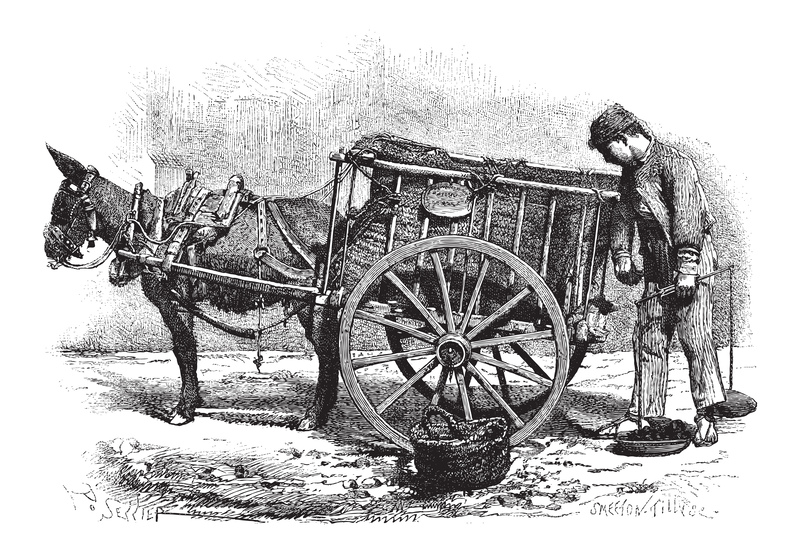How to Sustainably Get Rid of Your Outdated Phone Chargers
Outdated phone chargers are a common problem in households and offices worldwide. With technology evolving at a rapid pace, it's easy to accumulate a drawer full of old charging cables, power adapters, and obsolete connectors. Though small, these electronic accessories can have a significant environmental impact if not disposed of responsibly. If you're wondering how to sustainably get rid of your outdated phone chargers, you've come to the right place.
Why Is Sustainable Disposal of Old Phone Chargers Important?
Electronic waste (e-waste) is one of the fastest-growing waste streams worldwide. According to the United Nations Environment Programme, only around 20% of all global e-waste is formally recycled. The rest often ends up in landfills, causing harm to the environment through the release of toxic substances. Sustainable disposal of outdated phone chargers and other small electronics is crucial for:
- Conserving natural resources: Many phone chargers contain valuable metals and components that can be reused.
- Reducing pollution: Proper disposal prevents hazardous chemicals from contaminating soil and water.
- Decreasing landfill waste: Repurposing, recycling, and proper e-waste management reduces the volume going to landfills.

Understanding the Components of a Phone Charger
To better appreciate sustainable ways to get rid of old phone chargers, it helps to know what they are made of. Typical phone chargers contain:
- Plastic housing - usually from non-biodegradable synthetic polymers
- Metal connectors - including copper, aluminum, and sometimes gold-plated pins
- Electronic circuitry - featuring a small circuit board with electronic components
- Rubber or PVC cables.
These materials, if properly recycled, can be extracted and reused, thus conserving resources and energy.
Eco-Friendly Methods to Dispose of Old Phone Chargers
Let's explore several responsible and sustainable routes to get rid of old charging bricks and cables without harming the environment.
1. Reuse or Repurpose Your Chargers
- Donate if functional: As technology changes, not everyone upgrades as frequently. Many people, including the elderly or children, still use older phones. Consider donating working phone chargers to charities, shelters, libraries, or schools. This prolongs the charger's useful life and keeps it out of the waste stream.
- Repurpose creatively: If you have a stash of micro-USB or older connectors, think outside the box. Transform chargers into art projects, DIY cable organizers, or even robots and fun crafts with kids. Repurposing not only reduces waste but can also serve as a rewarding eco-friendly activity.
- Keep a spare for travel or emergencies: Old chargers can be kept in your car, at work, or in your travel bag as backups. This limits the need to buy new chargers in unforeseen situations.
2. Take Advantage of Manufacturer and Retail Take-Back Programs
Many tech companies and retailers recognize their role in managing electronic waste responsibly. Some offer special programs to recycle outdated mobile chargers sustainably:
- Apple: Through its Apple Trade-In and Recycling Program, you can return old chargers, cables, and devices at Apple stores for responsible recycling.
- Samsung: Offers drop-off locations for old electronics, including chargers and cables, in select stores.
- Best Buy: Their Electronics Recycling Program accepts most types of phone chargers and even offers a drop-off box at most store entrances.
- Local Electronics Stores: Many local electronics retailers now provide e-waste collection bins for small items such as chargers and cables.
Before dropping off items, check the store's website to understand what items they accept and any restrictions (such as quantity or charger type).
3. Find a Certified E-Waste Recycling Facility
Another sustainable way to dispose of old phone charging accessories is to utilize certified e-waste recyclers, which are specially equipped to:
- Sort chargers by type and component
- Safely extract useful metals and components
- Properly handle hazardous materials in compliance with environmental laws
Look for recycling programs or centers certified by R2 (Responsible Recycling) or e-Stewards standards. These certifications ensure that the recycling process is traceable, ethical, and environmentally friendly. Most municipalities provide information about local e-waste recycling events or permanent drop-off facilities on their websites.
4. Participate in Community Recycling Events
Many cities and towns host periodic e-waste collection drives, often in partnership with electronic retailers or environmental groups. These events are a convenient way to get rid of outdated phone chargers sustainably along with other small electronics. Check with your local government, waste management authority, or community center for upcoming dates and participation rules.
5. Mail-In Recycling Services
If there are no convenient drop-off locations nearby, consider nationwide mail-in recycling programs. Some reputable options include:
- TerraCycle: Specializes in hard-to-recycle items like cables and wires. They offer prepaid shipping labels and specialty recycling boxes.
- Call2Recycle: Though mainly for batteries, some programs accept phones and charging accessories as well.
Be sure to pack your old phone chargers according to the program's instructions to ensure safe and eco-friendly shipping.
Best Practices to Sustainably Get Rid of Outdated Phone Chargers
As you consider which sustainable disposal method fits your needs, keep these best practices in mind for maximum environmental benefit:
- Check if your charger is still compatible: Some "obsolete" chargers work for other gadgets (Bluetooth speakers, e-readers, digital cameras). Use them until they no longer function.
- Bundle cables and adapters for recycling: Some facilities require that cords and adapters be separated. Group like items together to ease the recycling process.
- Never throw chargers in the trash: Landfilling e-waste is illegal in some regions and harmful everywhere. Chargers may leach toxic chemicals over time.
- Erase any data if the charger has smart components: Some modern chargers come with built-in Bluetooth or memory. Perform a factory reset or data wipe if applicable.
What Happens to Chargers After They're Recycled?
Recycling outdated phone chargers involves several steps once they leave your hands:
- Sorting and disassembly: Chargers are separated from other e-waste, and components are categorized (plastic, metal, circuit boards).
- Mechanical breakdown: Machines shred the chargers into small pieces for further separation.
- Material recovery: Techniques such as magnetic separation, air classification, and chemical processes help recover copper, aluminum, gold, and plastic.
- Reprocessing: Extracted materials are sent to manufacturers to become new electronics, car parts, furniture, or other products.
This closed-loop process reduces the need for raw materials, cuts energy use, and prevents environmental pollution.
How to Avoid Accumulating Outdated Chargers in the Future
Don't let your efforts end with recycling. Consider these sustainable habits to minimize "charger clutter" going forward:
- Opt for universal charging standards: Choose devices that use common connections like USB-C to limit the need for multiple chargers.
- Buy only what you need: Avoid impulse purchases or free bundled chargers if you do not require them.
- Support brands with strong recycling commitments: Some manufacturers actively design products for recyclability and offer robust take-back programs.
- Encourage friends and family to recycle responsibly: Spread awareness about the importance of sustainable e-waste disposal in your community.
Frequently Asked Questions (FAQ)
Can I put phone chargers in the recycling bin at home?
No. Most curbside recycling programs do not accept electronics or small appliances like phone chargers. Always take them to specialized e-waste facilities or events.
Are there any parts of my charger that can't be recycled?
While most metals and plastics in phone chargers are recyclable, some parts - such as certain adhesives or coatings - may not be. Certified recyclers will properly manage these materials.
Does it cost money to recycle old chargers?
Many communities and retailers offer free drop-off for small electronics and chargers. Specialty programs, especially mail-in services, may charge a fee to cover shipping and handling.

Summary: The Right Way to Get Rid of Old Phone Chargers Responsibly
Our digital lives should not come at the planet's expense. By following the practices in this article, you can sustainably dispose of unwanted phone charging accessories and help build a greener, cleaner future. Remember to:
- Reuse or donate old chargers when possible
- Utilize manufacturer or retailer take-back programs
- Find a certified e-waste recycler in your area
- Participate in community recycling events
- Use mail-in recycling services if necessary
Together, by making smarter choices about our e-waste, we can prevent pollution, save resources, and create a more sustainable world.